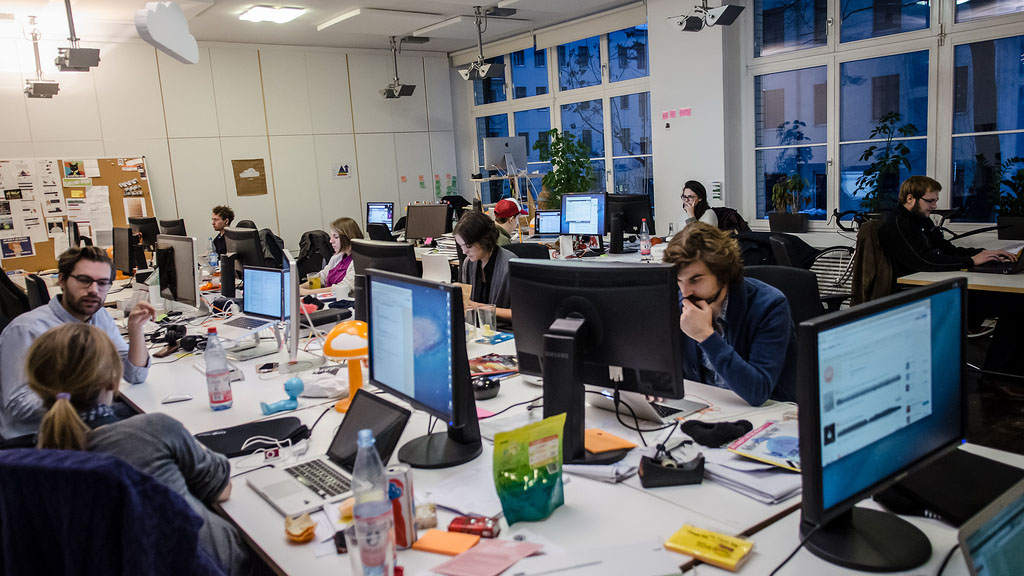Building a digital economy with affordable housing
The future of our digital economy is threatened by the rise in property costs

Technological innovation in the UK is booming. According to the Office for National Statistics (ONS), there are 129,165 IT firms in the UK, of which 32,710 are in London.
But there's a looming issue that could hurt this high-growth industry - property costs.
Between July 2012 and July 2013, property prices in the UK rose 3.3%, with London far outstripping the rest of the country by rising 9.7% in one year. Make no mistake, these are worrying figures.
In a time of rapidly falling wages (a 5.5% drop in average hourly wages since 2010) and a rising cost of living (soaring 25% since the downturn), people who want to make the leap into entrepreneurship face a difficult task in saving up enough funds to start their business and budget for a few months of not making money.
It all comes down to risk.
With an increasingly large disparity between wages and the cost of living, there's less incentive for budding entrepreneurs to take a risk and start a business because the financial consequences are so monumental.
Up until this point, we've seen good growth in digital companies but this could come to a rapid end should we stumble into another housing bubble. There are concerns that the government's mortgage guarantee scheme is fuelling nationwide growth and leading us down a treacherous and well-trodden path to over-inflated house prices - even the Royal Institute of Chartered Surveyors urged the Bank of England to take the unprecedented step of putting a 5% cap on national house-price growth.
Sign up to the TechRadar Pro newsletter to get all the top news, opinion, features and guidance your business needs to succeed!
If your rent takes up almost two thirds of your income (as is the case with most Londoners) then there's less chance you will be able to take that first step into entrepreneurship because you cannot afford to take the risk.
With approved bank loans to SMBs 3.3% lower than last year, and one in three businesses failing in their first three years, entrepreneurs will struggle to get their businesses off the ground.
An increase in housing costs, both personal and professional, will only make starting up even more of a risk. Fewer entrepreneurs willing to take that risk means less innovation, which is bad for a future UK economy that should be built around science and technology rather than financial services.
A capital issue
If you strip away London and the south east from the ONS housing figures, the growth in prices is relatively modest at 0.8%. This shows how acute the problem of property costs is in London.
These sorts of property booms in capital cities can have a detrimental effect. If you look at the mothership of tech clusters, San Francisco Bay, rents have soared 11% in one year, and four out of the 10 most expensive housing markets in the US are in the Bay area.

This, in turn, has forced out local residents, businesses and entrepreneurs who wanted to take advantage of starting up in such a prestigious tech cluster.
The same thing is happening in London.
It's important that clear, coherent and separate housing policies are set out for both London and the rest of the nation, to properly nurture and grow the UK's digital companies.
Speaking to TechRadar, Guy Mucklow, CEO of Postcode Anywhere, an address auto-fill service for ecommerce websites, said that rising rental costs in London forced him elsewhere: "There was no real need or incentive to move back into London to start my business. Costs were significantly lower in Worcester, where we would have been paying roughly a quarter of London rents - and as a very young business that was self-funded, we were not under major pressure to go out and aggressively hire talent."
The German warning
Branching out to other parts of the UK to save money could become a distant memory if property prices continue to rise nationwide, and drastic action will have to be taken. Germany's flagship tech cluster in Berlin has suffered from crippling rental prices, rising more than 40% since 2007 as success attracts more businesses and more people.

Although there are alternative solutions, such as shared workspaces, the long-term practicalities of these has been brought into question. European Managing Director of Zapper.com, Bradley Duke, says they're only a short-term solution: "I am aware of shared office venues in London where you can work for free, but these are more suitable when the startup is in its very early stages, with perhaps one to three staff; not for a long-standing medium to large company."
In order to make the economy more startup-friendly, the government needs to take a more considered approach to tackling the housing crisis: rather than making it easier for people to access debt it needs to focus on actually bring property costs down. If it was able to do that, then we too, just as Germany, could ensure the future of our digital economy.